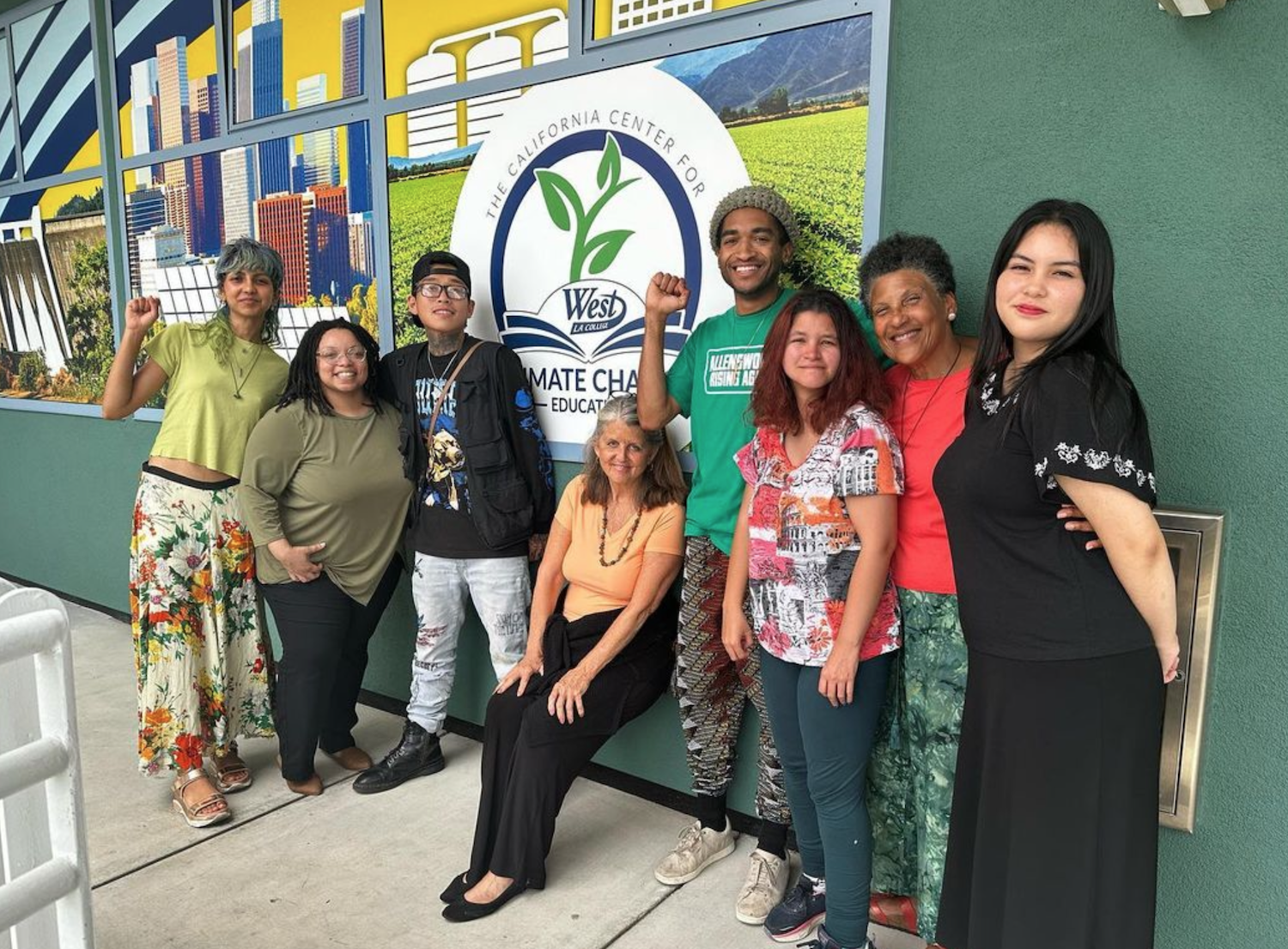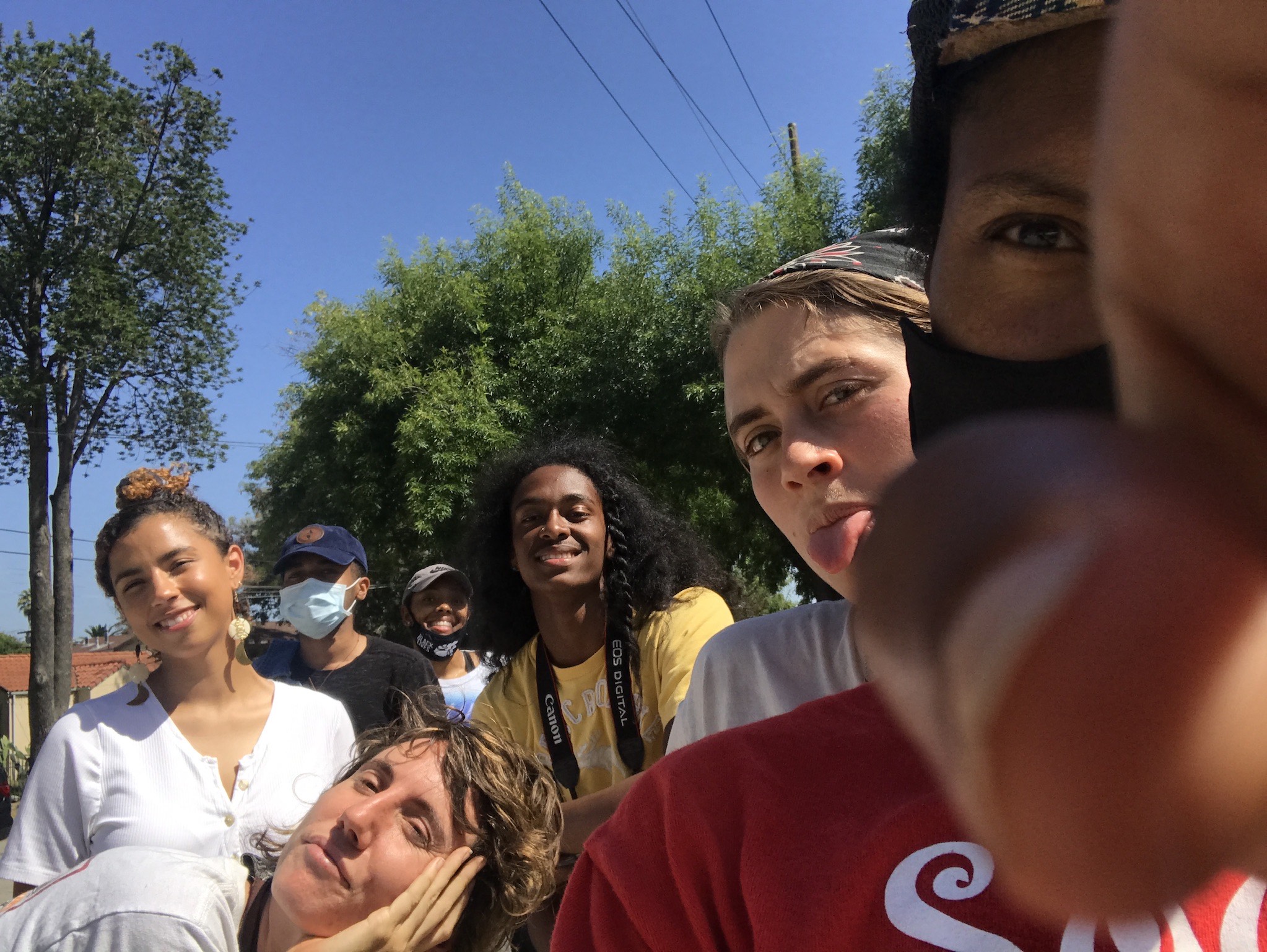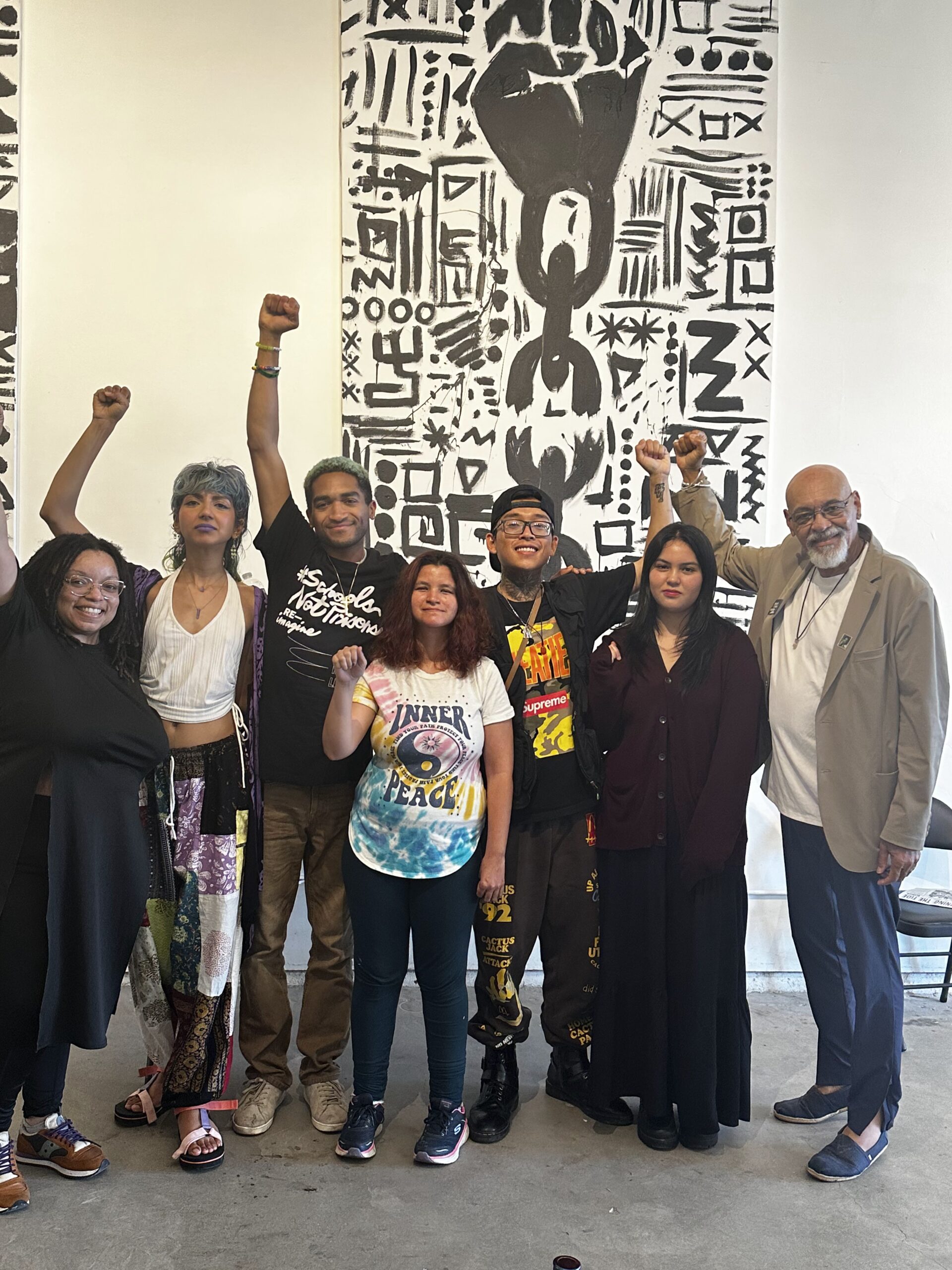A Convergence of Community, Collaboration, and Commitment Towards a Sustainable Future with When Black + Brown Go Green (WBBGG)
Since its inception in 2018 in the San Gabriel Valley and Los Angeles, CA, where access to green spaces is not a given, When Black + Brown Go Green (WBBGG) has emerged as an intergenerational beacon for climate action and regenerative living. Visionary artist and activist, Felecia “Fe Love” Lenee Williams, spearheaded WBBGG, visualizing green spaces as community rejuvenators. Championing the self-determination of Black and brown youths, the organization is now making significant progress in environmental stewardship, health, education, and mobility, with tree planting serving as a catalyst for brighter futures for students of color.

These ambitious goals are faced with limited financial backing. The pressing question has become: how can this organization secure adequate funding?
This challenge took center stage at their inaugural strategic retreat. As the Los Angeles sun shone brightly in late July, the WBBGG advisory board convened, bound by their shared mission and the indomitable spirit of their founder — who passed away in 2021. The retreat was a melding of holistic wellbeing and environmental justice discussion, plus strategizing for the future.
On the first day of the retreat, the team, including Chris Lyric, WBBGG project director, who has recently taken on the mantle of Love’s work, commenced their journey with restorative embodiment activities, setting the stage for reflection and clarity. The team, along with their project advisor, Karmella Green, gathered at the Umoja Center in Leimert Park Village — recognizable from Issa Rae’s HBO comedy “Insecure.” The center, home to the Crenshaw Subway Coalition and the Liberty Community Land Trust, was a fitting backdrop for a collaborative brainstorming session. But amidst all the strategy and visioning, a primary concern persisted: the need to raise $50,000 to initiate their programming.
Followed by a meditation session that established a tone of thoughtful intentions and unity, a listening circle delved into topics of environmental justice and holistic wellbeing. Later, an interactive music sharing session sought to identify elements of songs that resonated with folks of shared values and inspired dancing. The day concluded with a guided exploration of Leimert Park led by Joana Tavares, oceanographer and director at the California Center for Climate Change Education at West Los Angeles College. The park visit included a Black makers market, another great opportunity for building tangible connection to the community in Leimert Park. The day’s activities wound down with a rejuvenating yoga session facilitated by Gayatri Sehgal, climate justice advocate, artist, and community organizer.

The second day took place at the CA Center for Climate Action Education and was laser focused on establishing foundational strategies. The group began with grounding exercises to solidify their collective intent. Collaborative sessions sketched out a cohesive vision, mapped out priorities and funding strategies, formulated engagement guidelines, and began discussions of potential programs. Finally, a communal meal symbolized unity and shared purpose.
During the retreat, insights from Baba Akili of Black Lives Matter Los Angeles further enriched the group’s perspective. Green, WBBGG’s project advisor, reflected on the weekend: “I feel a deep gratitude for the passion and efforts of the youth advisory council and individuals who joined us in LA for the weekend. It’s clear that there is a need for more Black and brown youth to be present within the environmental justice space.” She continued, “during the retreat I learned the importance of being a collaborator, a disruptor, and activist while standing in solidarity with others in the climate justice movement.”

WBBGG seeks to launch their ambitious Green Force Fellowship, which aims to swiftly plant 400 trees while cultivating youth leadership and stewardship. This work underscores the imperative role of seasoned professionals to steer the initiative and help with funding. Thus, the young organization stands at a crossroads where their vision and their challenges intersect. Now, they’re considering diverse revenue streams, such as community-driven webinars and park clean-ups. With the support of their community and MSC, WBBGG is forging ahead, seeking sustainable and innovative avenues to fund their mission including balancing the pursuit of grants and sizable donations with a commitment to robust community outreach.
Amidst these challenges, WBBGG’s vision remains unaltered: a mission to sculpt a community-driven, greener future.
Discover how you can support When Black and Brown Go Green by contributing here. Delve deeper into their journey here.

